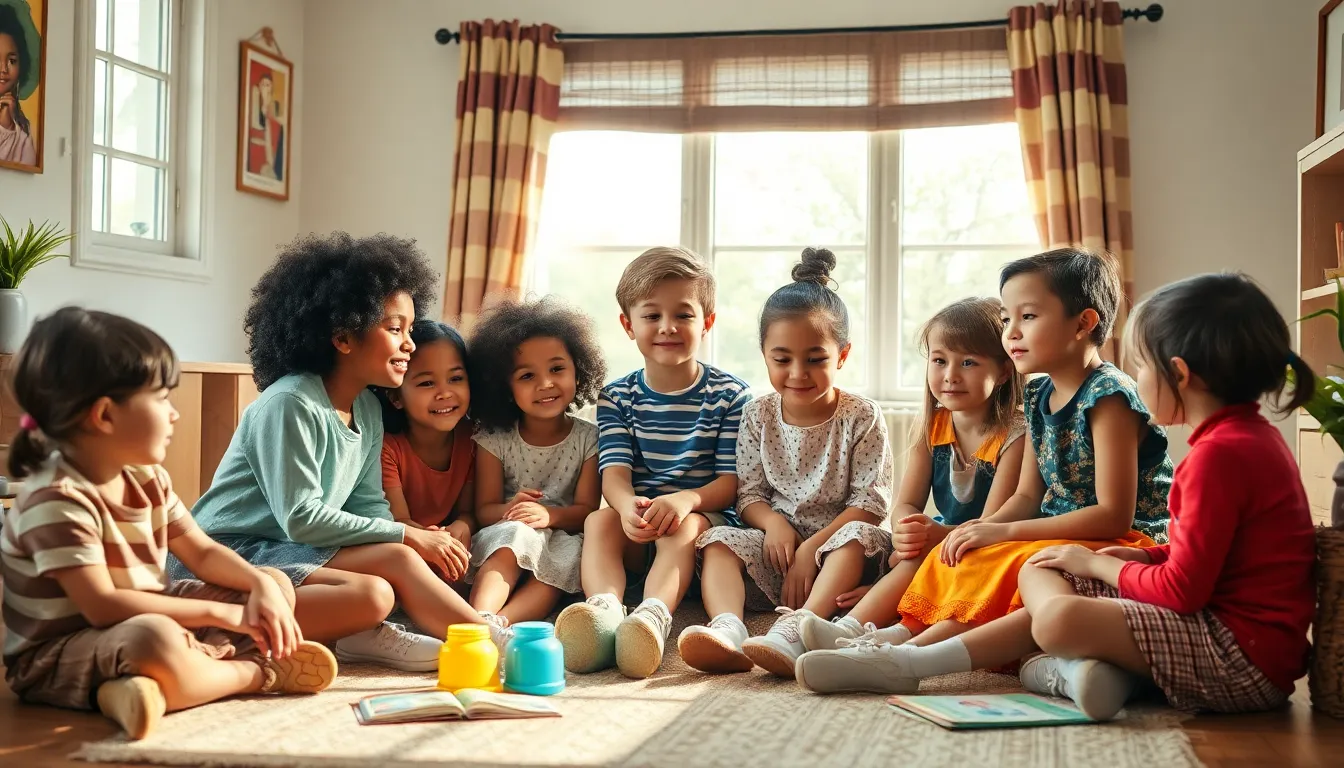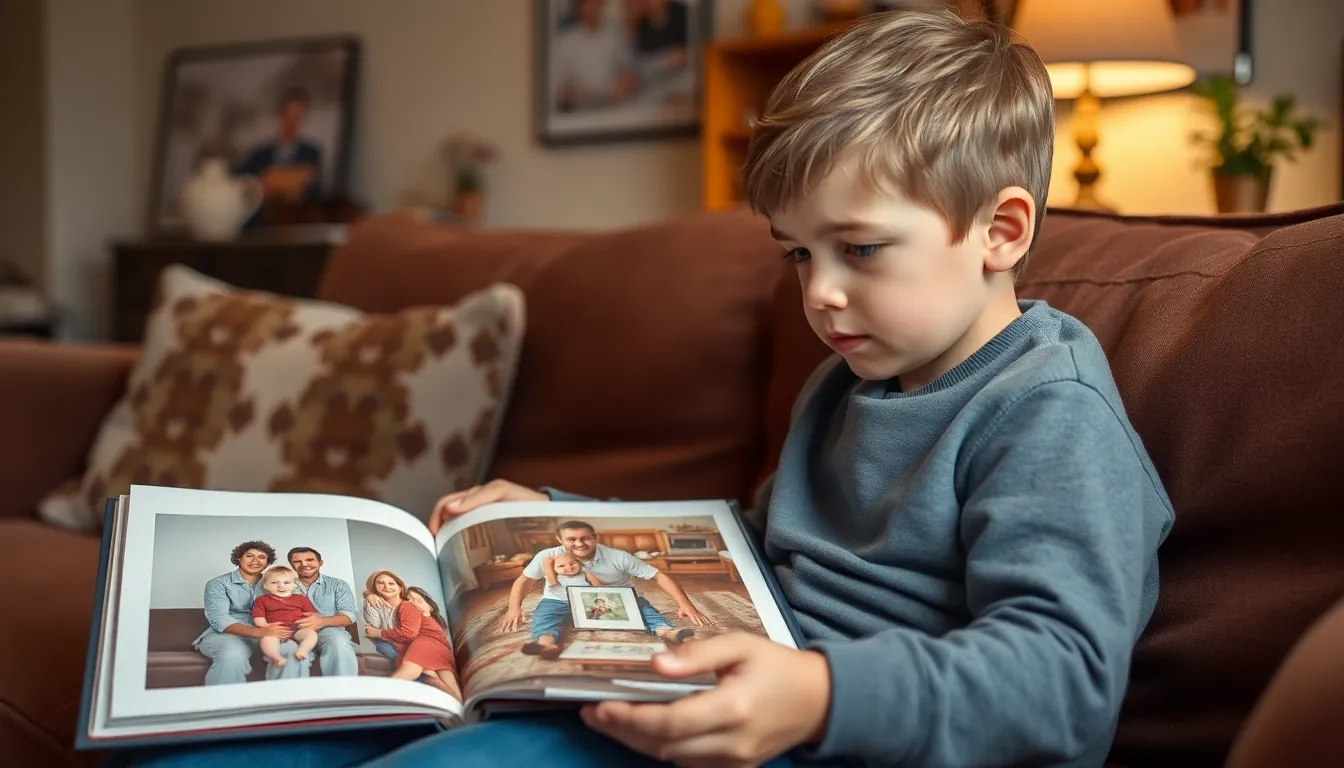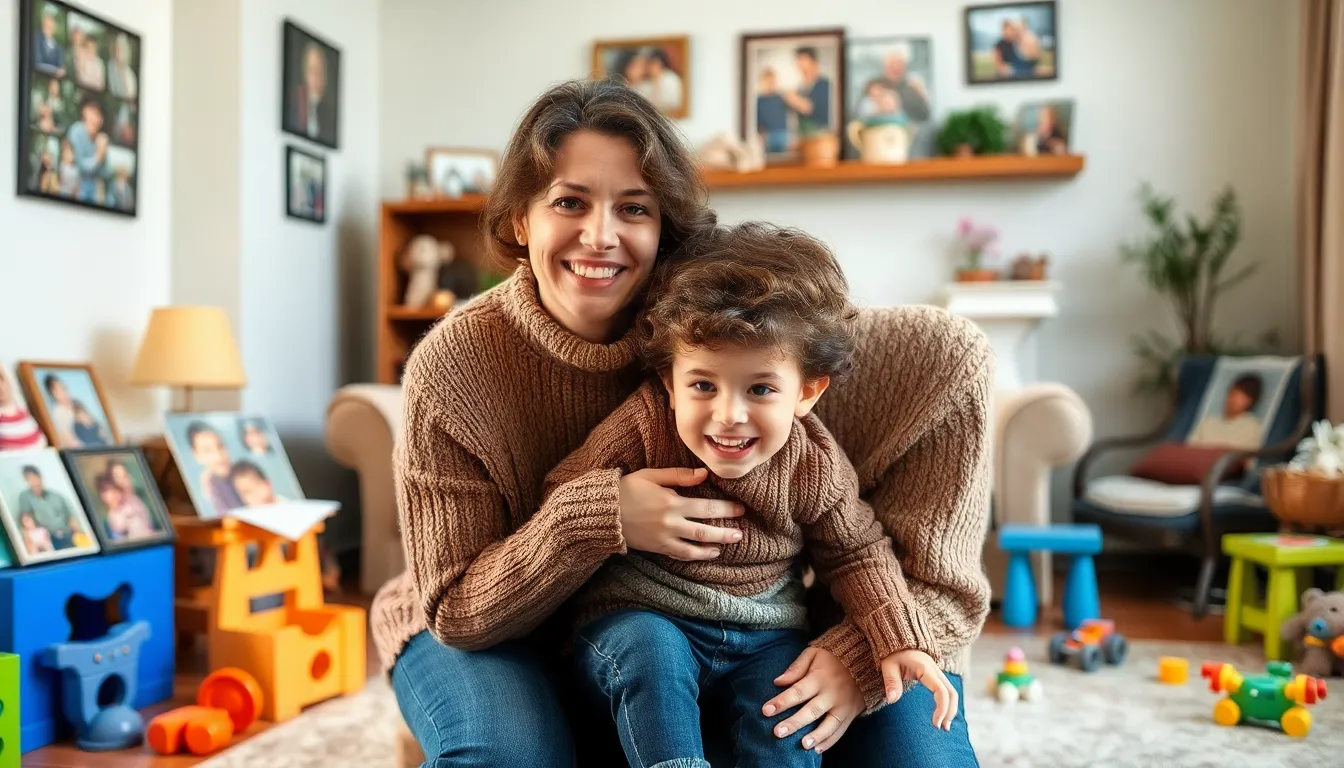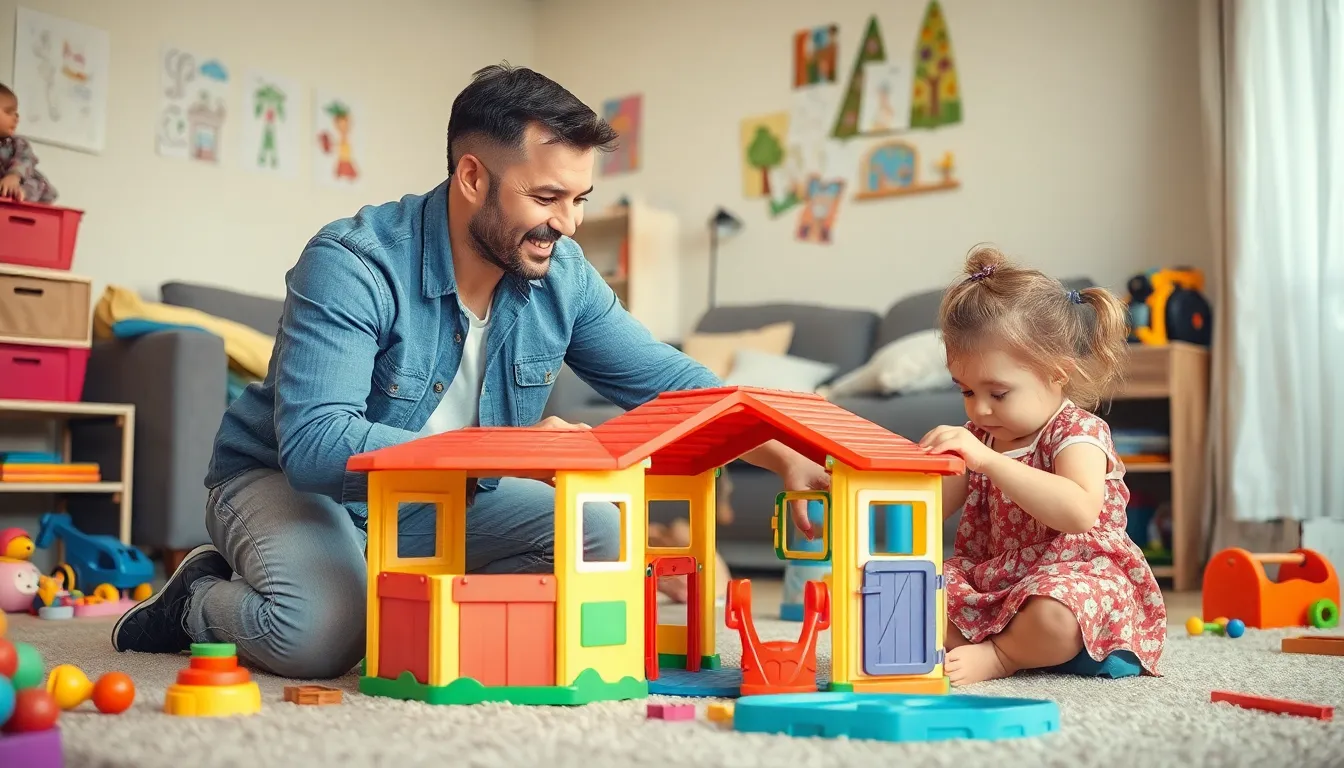Adoption isn’t just a legal process; it’s a heartwarming journey that transforms lives. Imagine being a superhero in disguise, giving a child a second chance at love and laughter. Every adopted child brings a unique story, filled with dreams and hopes waiting to unfold.
Table of Contents
ToggleUnderstanding Adoption
Adoption represents a significant commitment, offering love and stability to children in need of a family. Understanding this process allows for greater appreciation of the emotional and social dynamics involved.
Definition of Adopted Child
An adopted child refers to a person legally taken into a family that is not their biological family. They gain rights and status equivalent to biological children. Such children might come from various backgrounds, experiencing diverse life situations leading them to adoption. Each adopted child carries a unique history and potential shaped by their earlier experiences. Legal adoption provides them the opportunity to grow in a nurturing environment, fostering emotional and psychological development.
Types of Adoption
Adoption types vary, catering to different needs and circumstances. Domestic adoption occurs within the same country, often involving infants or older children in foster care. International adoption involves children from different countries, allowing parents to provide homes to children worldwide. Open adoption maintains contact between the birth family and adoptive family, promoting a continued relationship. Closed adoption offers confidentiality, with no contact between biological and adoptive families. Each type of adoption comes with its own set of regulations and processes, impacting both the child and parents involved.
The Journey of an Adopted Child


Adopted children experience a unique journey that involves navigating emotional complexities and identity formation.
Emotional Challenges
Emotional challenges arise as adopted children process their feelings about their past. They often face a mix of abandonment, loss, and uncertainty. Children frequently express insecurities related to their worthiness of love and belonging. Many may struggle with trust issues, particularly if prior relationships involved trauma. Supportive environments help mitigate these challenges, providing safe spaces for open dialogue. Utilizing therapy and support groups fosters resilience and coping strategies. Adoptive parents play a crucial role in validating their children’s emotions and offering consistent reassurance.
Identity Issues
Identity issues commonly surface in the lives of adopted children. They grapple with questions surrounding their origins and personal narratives. Curiosity about biological relatives often leads to a quest for understanding their heritage. Many children find comfort in exploring their unique stories and cultural backgrounds. Open adoption arrangements can facilitate conversations about identity, allowing children to create connections. It’s essential to encourage discussions about adoption, helping children integrate this aspect of their lives. Acknowledging and celebrating their journey fosters a stronger sense of self in adopted children.
The Role of Adoptive Parents
Adoptive parents play a crucial role in the development and well-being of their children. They provide love, security, and a sense of belonging, fundamentally shaping their children’s lives.
Building A Strong Bond
Creating a strong bond requires consistent engagement and understanding. Trust builds when adoptive parents dedicate time to understand their child’s unique experiences. Activities such as shared hobbies and family traditions foster connection. Open communication promotes emotional safety, allowing children to express their feelings. Additionally, validating feelings helps children navigate their identity. The more parents show that they care, the stronger the relationship grows.
Addressing Concerns and Questions
Adoptive parents often face questions about their child’s past and adoption journey. Discussing these topics with sensitivity and openness is essential. When children express curiosity about their origins, acknowledging those feelings shows acceptance. Parents can provide age-appropriate information that fosters understanding. Engaging in open conversations removes stigma surrounding adoption. Recognizing the child’s unique background is also critical in addressing identity issues. With thoughtful discussions, parents help children integrate their stories into a healthier self-image.
Support Systems for Adopted Children
Support systems for adopted children play a vital role in their emotional and psychological development. Access to resources such as counseling services and community support can significantly enhance their overall well-being.
Importance of Counseling
Counseling offers adopted children a safe space to explore their feelings. It helps address issues like abandonment or identity concerns. Professional therapists trained in adoption-related challenges provide valuable support. Regular sessions can foster resilience, allowing children to articulate their thoughts and emotions freely. Adoptive families benefit from counseling as well, learning constructive ways to communicate. Such guidance strengthens family bonds, promoting understanding and acceptance of children’s experiences.
Community Resources
Community resources serve as essential support networks for adopted children and their families. Local support groups often provide opportunities for shared experiences and connections. Schools also play a crucial role by offering programs that support emotional health. Various organizations provide informational resources and workshops to educate families about adoption dynamics. Events in the community allow adopted children to meet peers with similar backgrounds. These interactions help children feel less isolated, reinforcing their sense of belonging and identity.







